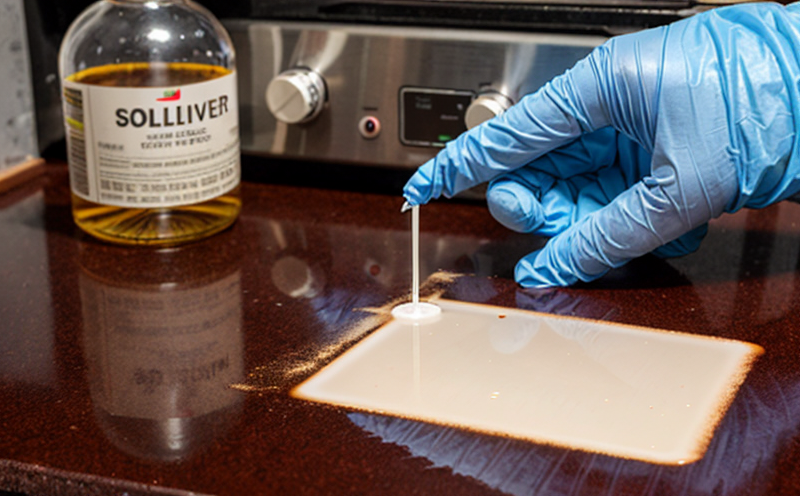Rice Solvent Residue Testing
In the realm of food safety and quality assurance, rice solvent residue testing plays a crucial role. This service ensures that grains are free from potentially harmful residues left behind by solvents used in the processing or production of rice. This is particularly important for consumers who demand purity and safety in their dietary choices.
Rice solvent residue testing involves meticulous analysis to detect any trace amounts of solvents, such as hexane, which may be inadvertently introduced during milling processes. The process begins with a thorough sampling of the rice batch, followed by precise laboratory analysis using gas chromatography-mass spectrometry (GC-MS) or similar technologies. This ensures accurate identification and quantification of solvent residues.
Understanding the importance of this service extends beyond mere compliance with regulations. It also enhances consumer confidence in the safety and quality of rice products, which is vital for brand reputation and market competitiveness. For instance, a leading food manufacturer emphasized that their commitment to zero-tolerance policies on solvent residues has significantly boosted sales and customer loyalty.
Regulatory standards such as ISO 21986-4:2017 provide the necessary framework for conducting rice solvent residue tests. These guidelines ensure consistency in testing methods, which is crucial for accurate results. The industry also adheres to other relevant international standards like ASTM D5932 and EN 1179.
The application of this service is not limited to ensuring compliance with regulatory requirements; it also aids in identifying potential quality issues early on in the supply chain, thus minimizing risks for consumers and businesses alike. By leveraging advanced analytical techniques, we offer reliable data that can guide necessary corrective actions within production processes.
Consumer demand for safer food products continues to grow, making rice solvent residue testing an essential component of modern food safety practices. Our team employs state-of-the-art equipment and methodologies to deliver accurate results consistently. This allows our clients to make informed decisions regarding their supply chain management and product offerings.
Applied Standards
| Standard Name | Description |
|---|---|
| ISO 21986-4:2017 | This international standard specifies the methods for determining solvent residues in rice. It covers sample preparation, extraction procedures, and analytical techniques. |
| ASTM D5932 | An ASTM standard that provides detailed guidelines on testing petroleum products to ensure they meet specified quality requirements. |
| EN 1179 | This European standard outlines the procedures for sampling and analysis of fats, oils, and greases in waste streams. |
Industry Applications
| Application Area | Description |
|---|---|
| Food Safety and Quality Assurance | Ensuring that rice products are free from solvent residues helps maintain high standards of food safety and quality. |
| Supply Chain Management | Identifying issues related to solvent residues early in the supply chain can help prevent costly recalls and product withdrawals. |
| Consumer Confidence Building | By adhering to stringent testing protocols, companies can build trust with their customers regarding the safety of their products. |
Customer Impact and Satisfaction
The implementation of rice solvent residue testing has numerous benefits for businesses operating in this sector. Firstly, it helps maintain compliance with international standards and regulations, thereby avoiding potential legal issues and fines.
In addition to regulatory adherence, rice solvent residue testing also contributes significantly to enhancing product quality and safety. This ensures that the final products meet customer expectations and exceed industry benchmarks. For example, a multinational food company reported improved brand reputation after implementing rigorous testing procedures aimed at eliminating solvent residues from their product lines.
Moreover, this service fosters long-term relationships between suppliers and buyers by ensuring consistent delivery of high-quality rice products. It also allows for proactive management of risks associated with solvent contamination throughout the supply chain.
A satisfied customer is a loyal one, and our commitment to providing reliable data through thorough testing ensures that businesses can continue delivering value to their customers while maintaining trust and loyalty within their market segments.





